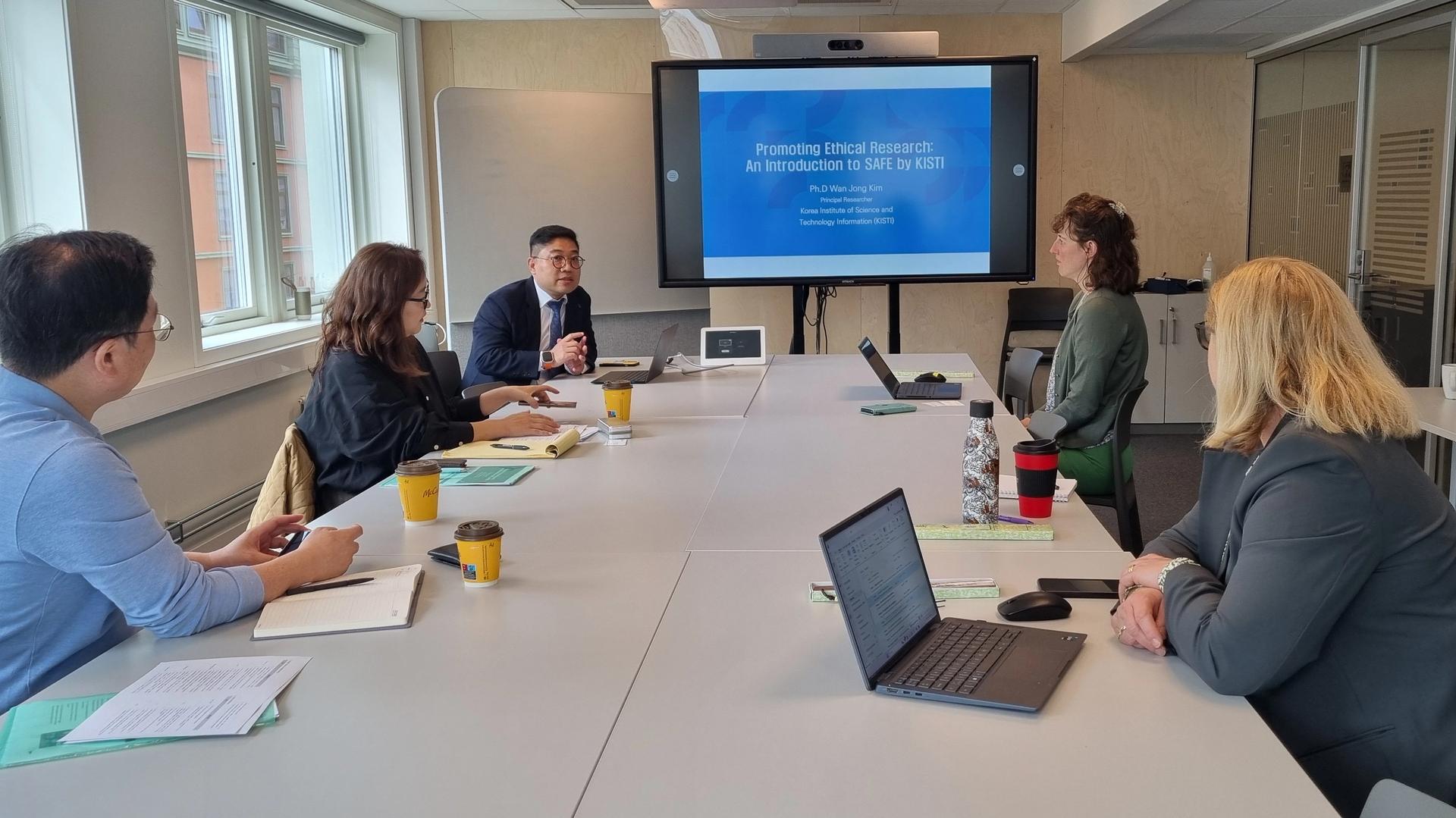Visitors from South Korea
On 19. June we were visited by three researchers who travelled all the way from South Korea to Norway to learn more about the Norwegian Register for Scientific Journals, Series and Publishers, popularly known as the Norwegian Register.

Dr. Inho Hwang, Dr. Hyobin Lee, Dr. Wanjong Kim, senior adviser Lena-Cecilie Linge and head of section Kristin Gåsemyr. Foto: Monica Roos
Predatory practice in Academia
The three researchers that visited us, runs the project “Guidelines for Preventing Predatory Academic Activities to Support a Healthy Academic Ecosystem”, funded by Korea Institute of Science and Technology Information (KISTI). The researchers are also involved in the work on «Healthy Academic Activities System», managed by KISTI with support from the South Korean government.
«Healthy Academic Activities System» is a platform where researchers can discuss and share information about the quality of academic journals and conferences, as a measure to prevent predatory journals and academic predatory practices. Predatory journals are journals that pretends to be serious scientific journals, but in practice have little or no control over the quality of what is published.
In designing the platform KISTI drew inspiration from the Norwegian Register. The platform also retrieves the levels from the Norwegian Register as part of the journal’s information for the platform’s users. Therefore, the researchers wanted to visit us who manage the Norwegian Register. They wanted to learn more about how the Norwegian Register works and what we do to keep predatory journals away from the Norwegian Register.
Common challenges
It became a comprehensive meeting where not only the South Korean researchers learned about the Norwegian Register, but where we also learned about the challenges the South Korean research community faces when it comes to scientific publishing and research fraud. Not least we found that South Korea and Norway have the same challenges in regards of academic, but commercial publishers. Some publishers have a publishing model where the publisher charges a hefty fee for publishing research articles as quickly as possible, without necessarily having a good process in advance to secure academic quality. This type of publishing model is constantly the subject of debate about scientific quality, both in the Norwegian Register, Norway in general and internationally.
International acknowledgement
We experience that our work on quality in the Norwegian Register receives international attention. Lately we have received several requests for collaboration or exchange of information, both from commercial actors and research institutions.
Amongst others, we have received a request from China National Publications Import & Export Group to exchange data. We are also partners on an application from Vilnius University Library to CoARA Boost’s first Cascade Funding Programme, where the goal is to speed up the reform of research assessment.
Quality in what we do
There are many academic journal indexes, but there are few of them which assess quality like we do in the Norwegian Register. The fact that the Norwegian Register is perceived as a recognised source of journal quality, not only in Norway, but also internationally, shows that we are doing something right when we work with quality in the Norwegian Register and erih+, which is also owned by the Directorate. The more people we can collaborate with both in Norway and internationally, the more we can contribute to fighting predatory practices in academia.
And we will keep in touch with the South Korean researchers and their project to fight predatory practices!